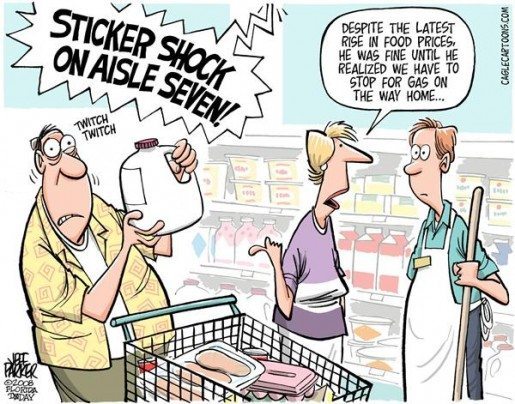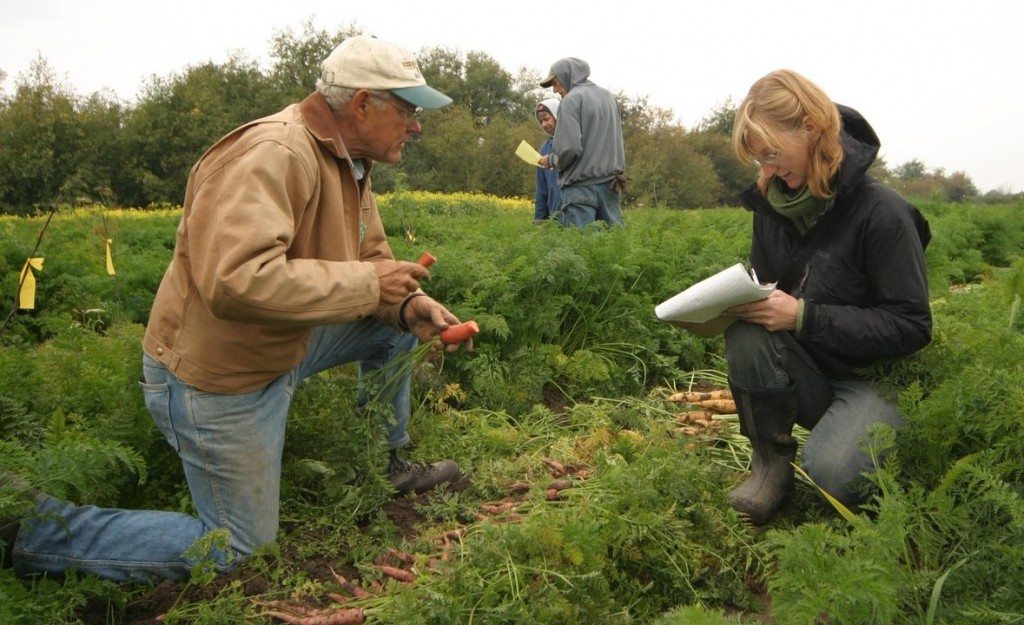
Why Does Organic Food Cost So Much? Risk and Cow Poop.
If there’s one thing we know for certain about organic food, it’s that it costs more than non-organic. In some cases organic food can cost up to 47% more. If you’re like me you’ve probably stood in the grocery store, raised your eyebrows at the cost of an organic apple sitting next to a non-organic apple and thought, “Holy Moly! Why is organic so expensive? Is it all just for better soil?”
A couple simple factors contribute to the extra cost associated with organic food and once you understand where that extra cost comes from, it makes it a little easier to swallow.

NATURAL YIELD VS. CHEMICAL YIELD
One of the advantages of using harmful chemicals is that you can make plants do some pretty supernatural things, like produce three times the amount produce in the same plot of land as naturally grown organic plants. This means that farmers harvest fewer vegetables per square acre of land than when using chemicals.
Also, the organic pesticides and fertilizers that organic farmers use cost more because they are often byproducts of other plants or animals and not synthetically made in a lab. As you can imagine, it takes a lot of work to stockpile enough cow “poo” to spread over a field to ensure sure your vegetables grow up healthy.
BETTER LIVING CONDITIONS
Organic farmers have higher standards for housing their livestock, which means that they spend more money to raise them. This means that chickens, pigs and cows have more room to move around and that they are fed higher quality feed which is also more expensive for farmers to use.

ORGANIC CERTIFICATION
To be a USDA certified organic farmer you must maintain your organic status. This means that famers have to pay a $400 to $2,000 annual fee to run soil tests. This is not a dire cost of organic farming, but it adds up.
ORGANIC FARMERS DEMANDING FAIR WAGE
One of the most high-risk jobs on the planet is farming. One bad harvest year can sink an entire family farm. The average medium sized farmer has to invest hundreds of thousands of dollars to plant and fertilize their fields every year, which means that farmers go deep into debt just to put seed in the ground. If Mother Nature gives the farmer a rough year due to drought or too much rain the farmer can get into serious finical trouble in a hurry.
Organic farmers have also demanded that they receive decent rate for their labor of love and you can’t really argue with that. If we want to encourage more farmers to start growing organic meats and vegetables they deserve to be compensated fairly for their work.